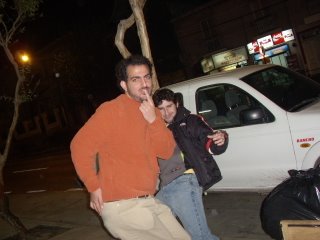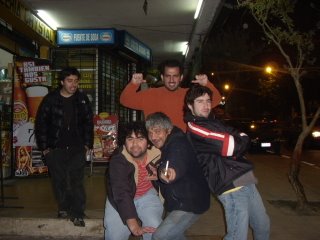It's been a year...
I haven't posted in this blog for ages, I just didn't have anything I wanted to say, nor do right now, I just wanted to update on what has been of my life.
It's been a year since I've been in Chile, god, that year seemed as 10!!
So, there are a few things that changed in the past year:
First, I've become this judgmental pessimist negative energy person. I don't know why this happened or how, it just did.
Second, if one year ago I had any idea what I wanted to do after finishing school, then right now, I have absolutely none, zip, zero, nada, keine idee. I know for sure i don't wanna stay in Chile, nor in any country in the region. Somehow, i am interested right now in investment banking, and it would be hard to get a career in IB if i stay in Chile, so i am checking my options after i'm done with Chile; slim chance, i know. I am thinking about a Master in Economics (one year programme) in Munich, or trying to get into a top 14 law school in the states. I know the last one is not the most orthodox methode of getting into IB, but a JD from a top Law school may give you a descent chance to enter as an asociate into an IB.
Fourth, I started going back to the gym which means that I won't be able to drink anything during the summer, which kinda sucks, since there are a lot of parties going on.
Last, I got the Chilean nationality, no big deal, just thought of mentioning it. I can go to any Latin country with just my Id (no passport) and visit Europe without a visa.
p.s I took 27 credits last semester and still managed to get one of the top grades in my class. I think I am easily ranked top 5%. I am not sure if considering my CGPA I would still be top 5%, but damn it, I know that by the time i finish my degree I will be at least top 5%. God I sound so nerdy,
Iysam's out

























